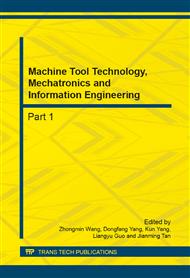p.2902
p.2906
p.2911
p.2915
p.2920
p.2925
p.2929
p.2934
p.2939
Vulnerability Assessment of Information System Based on Weighted Directional Graph and Complex Network Technology
Abstract:
Assessment model of the vulnerability for information system is improved by using Bayesian equilibrium algorithm. The mathematical evaluation model of combined complex network information systems is established through the combination of weighted directional algorithm, and the algorithmic routine of network vulnerability assessment is designed. In order to verify the validity and reliability of the model and the algorithm, the test platform of complex network is built, and the vulnerability of network is detected with the weighted directional method, which has got the probability distribution nephogram of network vulnerability and the curve of network performance with time changing. At the last, the effect of different nodes of the network on the vulnerability of system is calculated with directed weights. And the results shown that the attacked number of different nodes and the attacked probability have improved the credibility of information analysis, which has provided theory reference for the research of information system vulnerability.
Info:
Periodical:
Pages:
2920-2924
Citation:
Online since:
September 2014
Authors:
Price:
Сopyright:
© 2014 Trans Tech Publications Ltd. All Rights Reserved
Share:
Citation:


